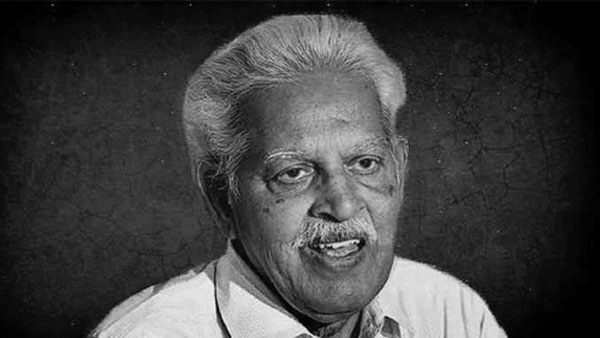After being imprisoned for over two years, on Monday, February 22, Varavara Rao, noted intellectual from Telangana, was granted bail by the Bombay High Court for six months on medical grounds.
The octogenarian activist, poet and professor has spent nearly 31 months in jail since his arrest in August 2018 under the Unlawful Activities (Prevention) Act. Since his incarceration, he has been shifted twice to Mumbai’s JJ Hospital after his health deteriorated — first in May 2019 and again in July 2020 when he tested positive for COVID-19. A number of petitions had been moved over the last two years asking the state government to grant him bail on humanitarian grounds.
“With all humility and human considerations, we are of the opinion that this is a fit case for allowing the relief,” a bench of Justices S.S. Shinde and Manish Pitale opined. They further said,“We feel that with the condition of the under trial, it would be inappropriate to send him back (to jail from hospital). The bench, however, directed the poet to remain within the jurisdiction of the special National Investigation Agency (NIA) court and to not indulge in any “nefarious activity”. The judges stated that these bail conditions were “necessary for ensuring that the under trial on his own or those allegedly associated with him do not take undue advantage of the situation, which would ultimately adversely affect the trial.”
Rao’s declining health condition had been highlighted on several occasions. On November 18, the Bombay High Court had advised the Maharashtra government to shift him to Nanavati Super Speciality Hospital for 15-days treatment. According to senior lawyer Indira Jaisingh, he was completely bed ridden through prolonged periods and “(in November) when his catheter was not changed for three months, he developed a urinary tract infection.” There was a significant chance that the octogenarian might die in custody as a result of such neglect, she had argued, and that would be nothing short of a “custodial killing.” Rao’s lawyers and family have repeatedly pointed out that he suffered from a range of serious ailments, and needed immediate relief from imprisonment.
Elgar Parishad Case
Varavara Rao was one of the sixteen political prisoners arrested in the controversial Elgar Parishad case.
On December 31, 2017, Dalit [the former untouchable castes] organizations and other progressive forces in Maharashtra had organized a gathering to commemorate 200 years of Bhima Koregaon, a battle fought between the Peshwa, the Indian ruler dominating the region, and the British army. The latter’s troops, comprised largely of Mahars — a Dalit community of Maharashtra — had defeated the Peshwa’s army, and the event has since been commemorated as a symbol of Dalit assertion. The December 2017 gathering invited the wrath of Hindu right-wing groups, who attacked people visiting the site, killing a Dalit youth and injuring many others.
Watch | Elgar Parishad Case: Tracking India’s crackdown on dissent
In order to conceal the role of the Hindu Right in the violence, an official narrative was spun that the mayhem was orchestrated by those having close links with Maoists, a banned political force in India. With this began a blitzkrieg attack by central government agencies, ably aided by the right wing corporate media, on several senior activists and academics who were all active in the struggle for the rights of oppressed communities in India.
These individuals were publicly vilified and branded as “anti-national”. While initial investigations had pointed in the direction of right-wing fundamentalists, the central government headed by the right-wing Bharatiya Janata Party directed the state machinery to indict the intellectuals, who were booked under several draconian “anti-terror” laws.
Planted evidence
The official narrative, however, has begun to come loose. On February 10, The Washington Post reported that incriminating evidence being used to build a case against one of the accused in the Elgar Parishad case, Rona Wilson, was planted in his laptop using malware. The report by Arsenal Consulting, a US based forensic firm, claims that at least 10 letters which are being used as primary evidence against Wilson, were planted prior to his arrest.
One of the letters was allegedly written to a Maoist militant discussing guns and ammunition while another discussed a plot to assassinate the current prime minister of India, Narendra Modi.
This damning revelation of evidence planting has prompted Wilson to file a petition seeking the dismissal of the case against him, while the civil society has come out in his support asking for a special probe into the matter. Rona Wilson was arrested on June 6, 2018, and has been in prison ever since.
The expose also raises larger questions about the impunity with which investigative agencies are hounding dissenters in India.





